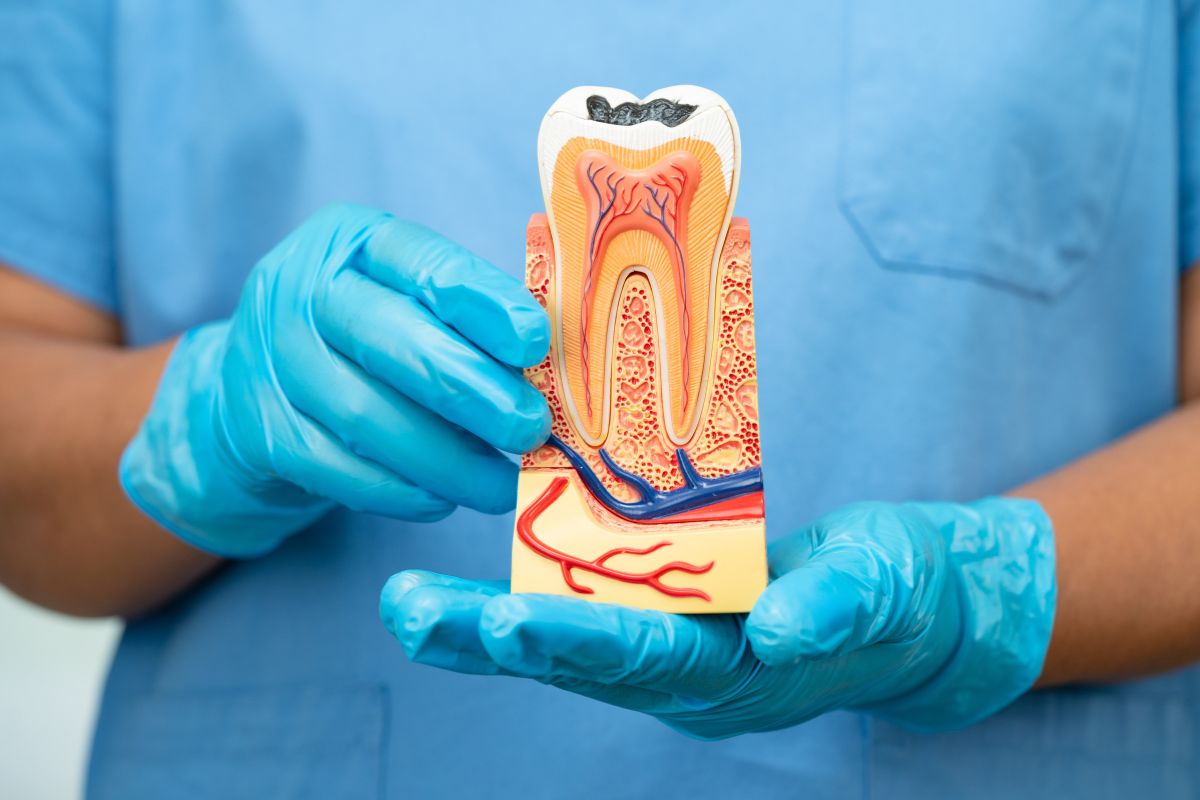Tooth pain can start small, a dull ache, a little twinge while chewing, or sudden sensitivity to cold drinks. But sometimes, that discomfort is your body’s way of saying something more profound is wrong. When an infection reaches the inner part of your tooth (called the pulp), it can cause severe pain, swelling, and long-term damage if left untreated.
That’s where a root canal becomes necessary. Contrary to popular belief, it’s not a painful procedure; it’s a restorative dental treatment that can save your natural tooth from extraction. Acting early makes all the difference. The key is recognizing the symptoms before the infection spreads.
Look at the top 10 warning signs that you may need a root canal before it’s too late.
Recognizing the Early Signs of Infection
When bacteria reach the pulp inside your tooth, they cause inflammation and pressure. If untreated, this can lead to abscesses and bone loss. Recognizing these early signs allows your dentist to treat the problem quickly and preserve your tooth.
1. Persistent Tooth Pain That Won’t Go Away
Constant pain is one of the biggest warning signs. You might feel a deep ache while eating or even at rest. The pain can radiate to your jaw, ear, or face, indicating the infection has spread to the root.
2. Sensitivity to Hot and Cold Foods
If sipping coffee or eating ice cream causes sharp, lingering discomfort, it could mean your tooth’s nerve is inflamed. Unlike regular sensitivity, this pain doesn’t fade quickly once the food or drink is gone.
3. Swollen or Tender Gums Around One Tooth
Localized swelling or tenderness near a specific tooth is another warning sign. Infection inside the root can cause the surrounding gum tissue to become red, puffy, and sore to the touch.
4. Pimple or Abscess on the Gums
A small bump or pimple on your gums is often an abscess—a pocket of pus caused by infection. It might burst occasionally, releasing a bad taste or odor. This clearly indicates that the infection has reached the root and needs immediate care.
5. Pain When Biting or Chewing
If you feel a sharp pain every time you bite down, it may indicate that the ligament around the tooth root is inflamed. This pain often intensifies over time, especially when pressure is applied.
6. Cracked or Chipped Tooth
Even a minor crack can let bacteria enter the tooth pulp. Over time, infection spreads below the surface. If you’ve recently chipped or cracked a tooth, watch for sensitivity or pain that develops days later.
7. Persistent Bad Breath or Bitter Taste
A foul taste or chronic bad breath that doesn’t improve with brushing could be caused by bacteria from a decaying tooth. When an infection produces pus, it can affect both taste and smell.
8. Facial or Jaw Swelling
Severe infection can cause visible swelling in the face, neck, or jaw. This is a dental emergency; if left untreated, the infection can spread to other parts of the body. Seek professional help immediately.
Why Acting Early Can Save Your Tooth?
Delaying treatment doesn’t make the infection go away; it makes it worse. Once bacteria reach the pulp, no amount of antibiotics or over-the-counter medication can fix it permanently.
A root canal removes the infected tissue inside the tooth, disinfects the area, and seals it to prevent reinfection. Modern technology has made this procedure almost painless and far more comfortable than most people imagine.
When caught early, it can:
- Prevent tooth loss.
- Eliminate pain and sensitivity.
- Protect the surrounding teeth and bone.
- Restore full function and natural appearance.
Most patients return to their regular routine the next day, pain-free and relieved.
How to Prevent a Root Canal in the Future?
Prevention starts with everyday habits and routine dental visits. You can protect your teeth from infection by:
- Brushing twice daily with fluoride toothpaste.
- Flossing at least once a day.
- Avoiding excessive sugary snacks and sodas.
- Wearing a mouthguard during sports to prevent fractures.
- Seeing your dentist twice a year for cleanings and exams.
Routine checkups help your dentist catch small cavities or cracks before they reach the inner pulp.
Take Action Early: Save Your Tooth and Your Health
If you’re experiencing these symptoms, don’t wait for the pain to become unbearable. At River Rock Dental Austin, Dr. Rebecca Rightmer and our team are here to help. We understand how important your smile is, and we’re committed to providing you with the care you need to preserve your natural teeth.
Book an appointment with us today, and let’s take the first step toward restoring your comfort and confidence. Early intervention can save your tooth.








